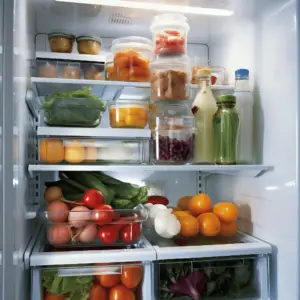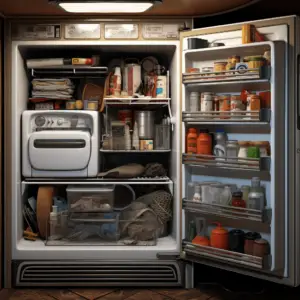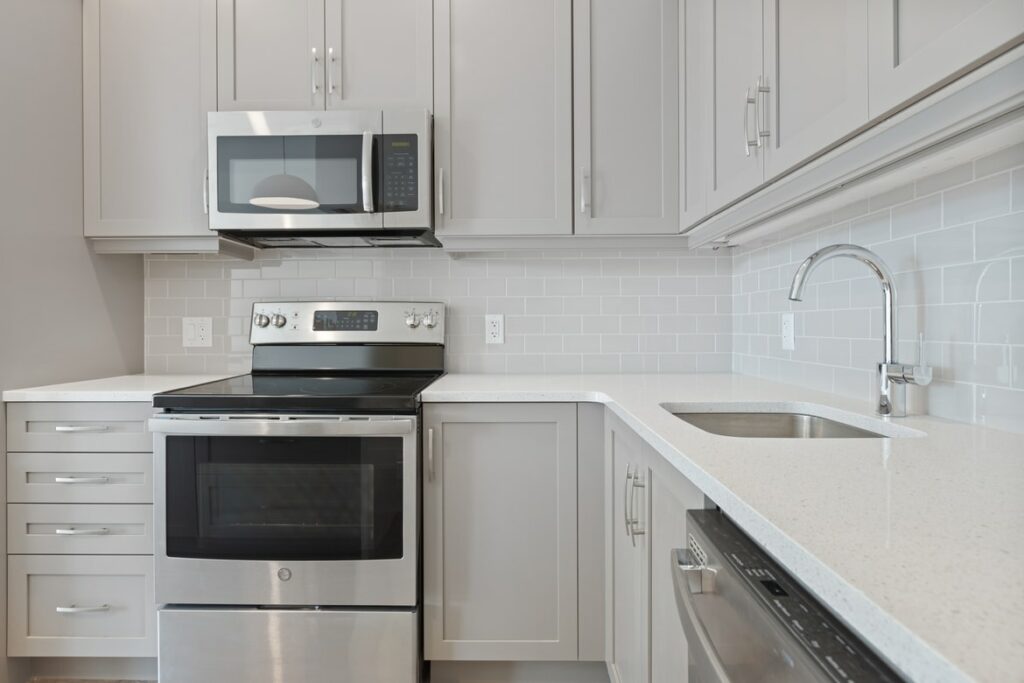Microwave ovens fall in the category of super essential cooking appliances. They cook food by producing energy waves that excite water molecules and warm the food from inside out.
However, unlike other home appliances such as TVs, microwaves are not supposed to overheat, and if they do, they should shut off.
Table of Contents
Can a Microwave Overheat?

Technically yes. A microwave can overheat unless it has special safety features to prevent it, usually in the form of an automatic shut-off.
While using a microwave, if the foods are left with no moisture to get heated, this can cause the unit to overheat and shut off automatically to prevent further overheating or incidents.
Also, if the microwave has a faulty fan, and you’re cooking for a long time, this can cause it to overheat and shut down.
If you’re running the microwave empty or cooking the food for too long, then it means there’s no moisture inside so nothing is actually absorbing the heat waves, resulting in the overheating of the microwave. There are a handful of reasons that could cause a microwave to overheat.
What Causes a Microwave to Overheat?
In the event that your microwave is overheating and shutting itself down, this could be due to high voltage parts inside the unit getting too hot, making the thermal cut-out switch be activated as a safety feature to prevent further overheating.
Once the unit has cooled down, the thermal cut-out switch will reset automatically and the microwave will proceed to operate as per normal. Other reasons for an overheating microwave include:
Fault in Auto-Switch off Function
Most microwaves usually feature an auto-off function which is automatically activated when the microwave overheats. This function shuts down the unit and protects it from further overheating.
However, due to some sort of issue or damage, the system can fail and the microwave may not switch off automatically as expected. That means the unit will keep running despite having a high temperature, resulting in overheating.
Overcooking
The next reason for an overheating microwave is overcooking food. Overcooking the food will definitely deplete the water molecules and so there will be nothing to absorb the energy.
Therefore, all heating will remain inside the microwave walls. Even when the microwave is turned off, the heat will still be there, and will ultimately cause overheating of the microwave. That’s why it’s important to always monitor the food while cooking it in a microwave.
Problem with the Fan
Nearly all microwaves are equipped with a fan to regulate their temperature. You could possibly hear it in the background while running the microwave. If the fan fails to work properly, the microwave should not even start.
However, if the fan is faulty, and the microwave starts, then there are high chances of the unit overheating as there is nothing that will regulate the temperature and prevent it from getting extremely hot.
How to Prevent the Microwave from Overheating
Most household microwaves are not designed to evade overheating when running empty or when there are no water molecules inside. They tend to overheat no matter what.
Commercial microwaves, meanwhile, can easily withstand high temperatures and still not overheat as quickly as regular ones. There are some measures that you can put in place to prevent your microwave from overheating:
Avoid Overcooking the Food
Avoid cooking food for too long, and certainly don’t overcook it. Overcooking can cause depletion of moisture inside your microwave and when there will be no moisture, the unit will overheat. So, be sure to run your microwave in small intervals and properly cook the food.
Regularly Inspect the Fan
Always make sure the fan is running while cooking the food. You could easily tell this by hearing the sound. If you suspect something is wrong, take your unit to a repair center before using it again. Inspecting the fan is one of the best ways to prevent overheating in the microwave.
What Should You Do if Your Microwave Catches on Fire?

In case your microwave oven catches on fire, you’ll need to act quickly and calmly. If it is safe, turn off the unit and unplug it immediately.
In the event that there is a fire burning inside, do not open the door or try to extinguish it. This will simply open the possibility of the fire spreading elsewhere.
Instead, wait for the fire to suffocate inside the oven before you think about opening the door. Don’t take chances, either. Contact the authorities if there’s any risk of the fire spreading. This can be prevented by:
- Checking and following safety instructions provided by the manufacturer.
- Follow cooking instructions on the packaging when heating foods.
- Only heating food items that are approved for microwave.
- Avoid heating any metal items in microwaves of any kind.
- Clean your microwave oven regularly.
Why Does Food Spark in the Microwave?
Foods can cause sparks in the microwave. This is most commonly experienced in dense vegetables such as spinach, carrots, bell peppers, green beans, and other dense vegetables.
The higher content minerals can cause sparks to fly. The food may display small signs of burning but should overall avoid overheating or damage and still be safe to eat.
Conclusion
We have talked about how microwaves can overheat and what causes them to do so. We’ve also included a number of things you can do to prevent your microwave from overheating.
Simply put, the main cause of overheating is cooking foods for too long, faulty fans, or malfunctioning of the auto-switch-off function.


